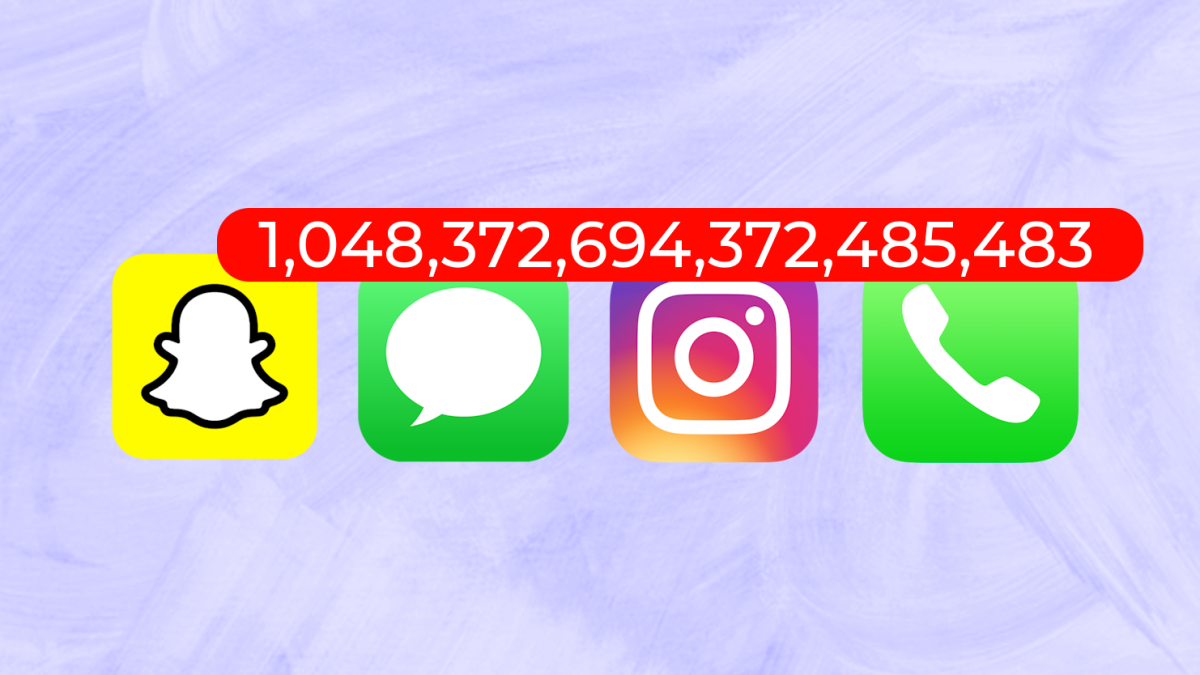“Delivered.” “Read.” “Sent.” “Opened.”
In our online culture, these direct message indications have raised anxieties due to the nature of their messages being left on the “Read” indicator. Most everyone I know has their phones readily available, and I believe this has caused people to feel entitled to other people’s attention whenever they seek it. I believe this entitlement is detrimental to our online interactions and to our emotional boundaries.
Voix magazine describes the phenomenon of “being left on read” as, “the act of reading a message but not responding to it after. Most of the time, people associate this with getting ignored.”
As a member of Gen Z, my generation grew up with technology readily available to us. Yes, I played with my LeapFrog as a kid and not an iPad, but I have never known the world without the internet. We connected constantly with friends over text and digital message, or even email, in middle school.
We started “talking” to our love interests over Snapchat and keeping up with our friends and trends on Instagram. Digital messaging is a staple of our communication, and it continues to tighten its grip on our interactions with one another.
When my phone buzzes, I answer the text. When a little number appears by Instagram, I check it. “John is typing,” and now it is opened. There is a certain urgency when these notifications come, and with it a feeling that you must acknowledge them.
Because our phone is always with us, we simply cannot avoid these notifications, and because we can not always avoid them, we unintentionally assume the person we are contacting will automatically respond – because we would.
That need to be constantly connected to people online died when I began to use my phone for work nearly full-time. I avoid seeking digital interaction because it means nothing to me. I crave real human connection through coffee dates, bowling or even just existing in the same room as my friends.
Yet, I continue to receive the, “You left me on opened,” and the “Are you angry with me?” messages because of my recent lack of digital attentiveness.
CBS reported that Pew Research noticed “45% of teens say they feel overwhelmed by social media, even while the number of hours spent on the apps continues to increase year after year.” Not only are we allowing our interactions to depend on digital messaging, we are also finding ourselves overwhelmed by them.
The intelligent rectangle in my hand is not allowed to dictate my life, or anyone’s life, anymore. I recognize context in this topic is important. If you are in a back-and-forth digital messaging conversation, being left on read will naturally raise emotions.
However, you never know the purpose of the pause or end of the conversation – perhaps the person who left you hanging needs time to think before sending something they might regret later.
I am taking control of my time and setting boundaries, and I empower others to find peace in those “Delivered; Read; Sent; Opened” indications.
Stop seeking digital connection. If someone is bothered by losing a Snapstreak, enjoy watching the fire emoji disappear from their name. Take power in watching someone’s social media story, even though their message remains unopened. Normalize leaving people on “Read” because people do not own your time, you do.








Ryan • Mar 26, 2024 at 10:25 am
Leaving someone on read is just rude. Personally, I won’t open a message if I don’t have to respond. If I open it and need time to think before responding I will say that. Why would you want anyone to feel ignored? This is basic human decency and manners, like holding the door open for someone. If people were more thoughtful, 99% of the human population would not have the same exact digital anxiety!
Samson • Sep 2, 2024 at 12:14 pm
Exactly